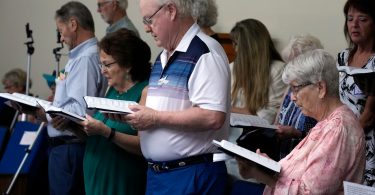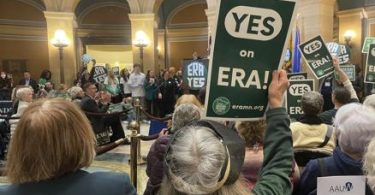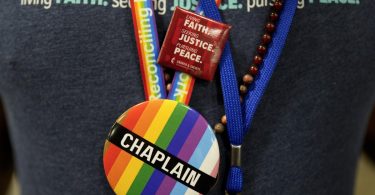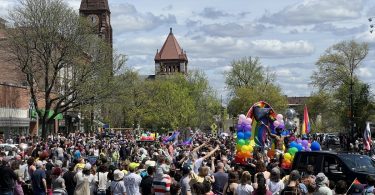
Riot is an Australian telemovie about the first Sydney Gay and Lesbian Mardi Gras. | Photo: Supplied
There was a scene in the new Australian telemovie, Riot, that I was dreading to watch and spent most of the film tense waiting for it to happen.
It was the scene of a young gay activist, Peter Murphy, being viciously beaten – almost to death – by members of the New South Wales Police Force.
His fellow activists who’d been hurled into small cells near him were forced to listen to his screams of pain as he was being viciously attacked.
I knew this scene was coming because I’ve met Peter Murphy, and he told me what happened. I’ve also had other ’78ers’ describe to me what it was like hearing Murphy’s screams of pain.
The 78ers were the men and women who on a fateful night in June 1978 were cornered by police while trying to hold a street party for gay righs, detained and beaten.

Xavier Samuel (L) and Damon Herriman star in Riot. | Photo: Supplied
Sydney Gay and Lesbian Mardi Gras
That street party was the first ever Sydney Mardi Gras. It’s now about to celebrate its 40th anniversary and is one of the biggest LGBTI festivals in the world.
Riot is a telemovie which screened on national broadcaster, ABC, and produced by Screen Australia.
It tells the story of the gay rights movement from 1972-1978 as the community for social and policy changes.
The film is an almost accurate representation of the fight for the decriminalization of homosexuality, parental rights and anti-discrimination laws.
Riot depicts the police harassment gay rights activists faced, even showing the heartbreaking scene where police stormed the home of main protagonist, Lance Gowland, and threatened to remove his special needs daughter.
It’s a gripping, amusing and harrowing tale of how hard it was to fight for equality.

The fateful night of the first Sydney Mardi Gras as show in the film Riot. | Photo: Supplied
As a journalist who has worked in queer media for a very long time, who has heard these stories firsthand from the 78ers and knows my LGBTI history I felt Riot really captured the early struggles of the movement.
But, perhaps unforgivably, it erased the experiences of trans and intersex people. This may have been accurate for its time, but I think the often forgotten members of our community should have been acknowledged.
The writers also claimed that ‘drag queens’ stood on the front line and started the riots at Stonewall in New York, when we know it was beloved trans woman of color, Marsha P Johnson that threw the first brick.

A trade union in Australia became the first in the world to back gay rights. | Photo: Supplied
Know your history
Speaking at the world premiere of Riot, some 78ers said the film didn’t get everything right, but it got what they wanted across.
That was that there was a long, exhausting and often violent fight for the rights we may take for granted today.
I have often argued that it is really important to know your queer history. Not only so you can acknowledge and thank your LGBTI elders for their struggle, but so that you can appreciate how good you’ve got it.
That fact seems to be lost on some of our younger generations.
It’s also important to know your history because not all LGBTI people around the world enjoy the same rights that we do. Therefore, we could work to help get equality for everyone.
But there was a sweet – albeit cheesy – moment at the end of the film when Gowland confronts police who are giving him a parking ticket.
He wants to bet the homophobic police officer that not only will the gay Mardi Gras go on for years but that one day they police will be marching in the parade.
Forty years later, he couldn’t have been more right.






